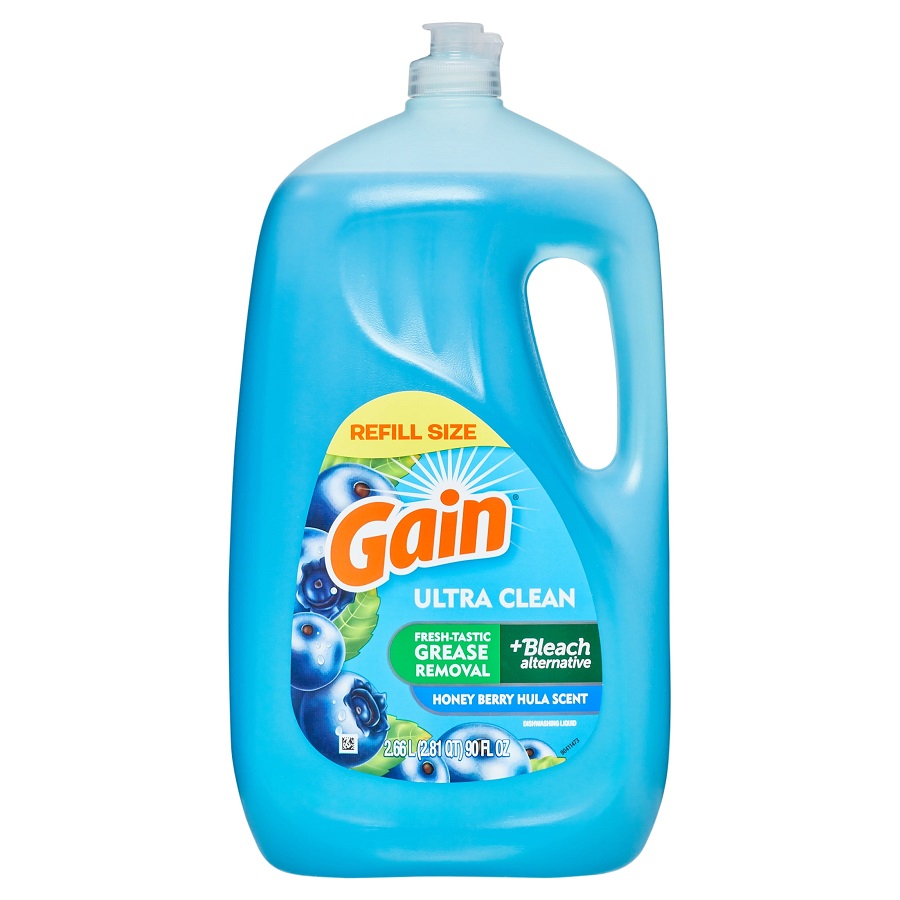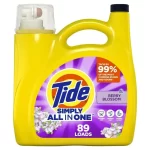Composition and Purpose Differences between Dish Soap and Laundry Detergent
Understanding the key distinctions between dish soap and laundry detergent is essential for effective usage.
Surfactants in Dish Soap vs. Laundry Detergent
Both dish soap and laundry detergent contain surfactants, which help clean by reducing surface tension. Dish soap’s surfactants focus on cutting grease effectively. In contrast, laundry detergent’s surfactants are tailored to remove a wider range of stains without harming fabrics.
Additional Ingredients and Their Roles
Dish soaps often include ingredients like fragrances and coloring agents which add to their aesthetic appeal but offer no cleaning benefits for fabrics. Laundry detergents, however, might contain fabric softeners and optical brighteners that improve the look and feel of clothes post-wash.
Formulation Differences and Their Impact
The chemical concentration in dish soap is tailored for tough grease and not for soft fabric. Using dish soap for laundry can lead to fabric damage due to harsher chemicals. Laundry detergents are formulated considering fabric care, ensuring that clothes are effectively cleaned without damaging fibers.
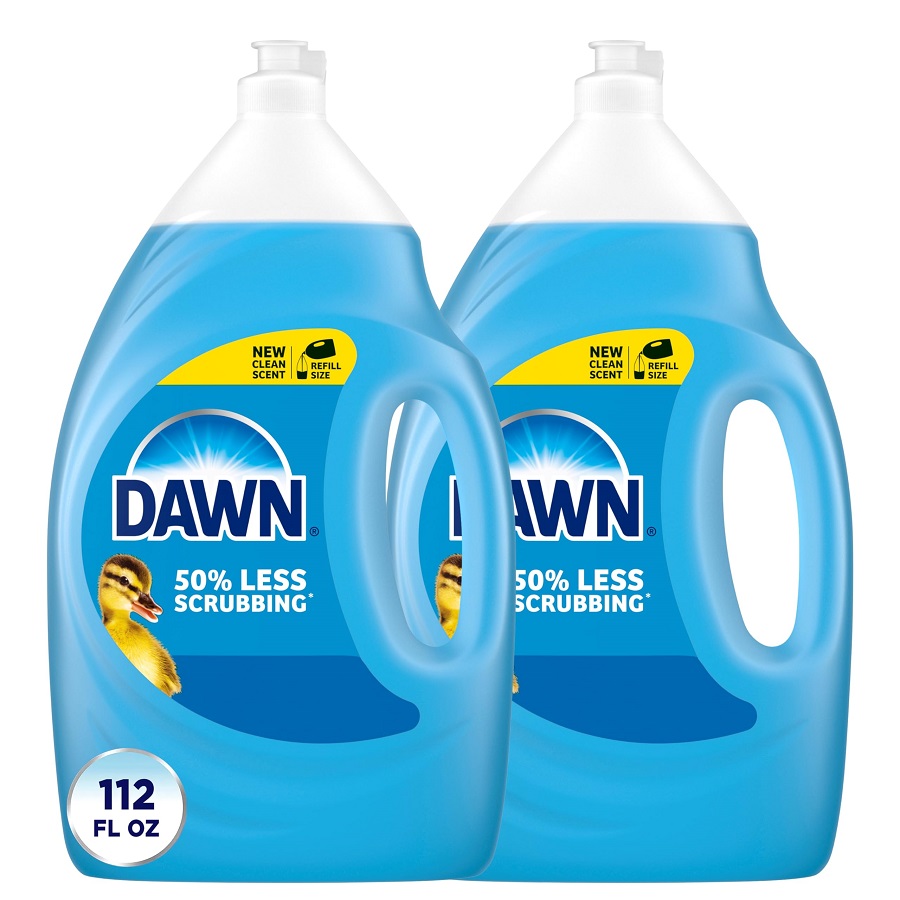
Risks of Using Dish Soap as Laundry Detergent
Damage to Clothing and Fabrics
Using dish soap as laundry detergent can harm your clothes. Dish soap’s harsh chemicals are not suitable for fabrics. These chemicals can cause fading, weakening, and rough textures. Over time, your clothing may become less comfortable and look worn out.
Excessive Suds and Potential Washing Machine Issues
Dish soap creates a lot of suds. High suds can overflow and damage your washing machine. Suds can block pumps and lead to costly repairs. Regular use of dish soap in machines is not advised.
Residual Soap on Clothes and Skin Irritation
Dish soap can leave a sticky residue on clothes. This residue can irritate the skin and cause discomfort. People with sensitive skin may experience allergic reactions.
Environmental Considerations and Sustainability
Most dish soaps contain phosphates and are not biodegradable. These components harm aquatic life and pollute water bodies. Using eco-friendly laundry detergents is a better option for the environment.
Potential Benefits of Dish Soap in Laundry
While it’s not a perfect substitute, dish soap can be handy in specific laundry scenarios.
Using Dish Soap for Emergency Stain Treatment
In emergencies, a tiny bit of dish soap can treat tough grease stains. Apply it directly to stains, then wash thoroughly.
Suitability for Handwashing Delicate Items
For delicate items, a small amount of mild dish soap works well. Always rinse items thoroughly to avoid residue.
Comparison to Traditional Detergent Solutions
Compared to laundry detergents, dish soap requires careful use to prevent damage. It is less suitable for regular washing but can be effective in targeted applications.
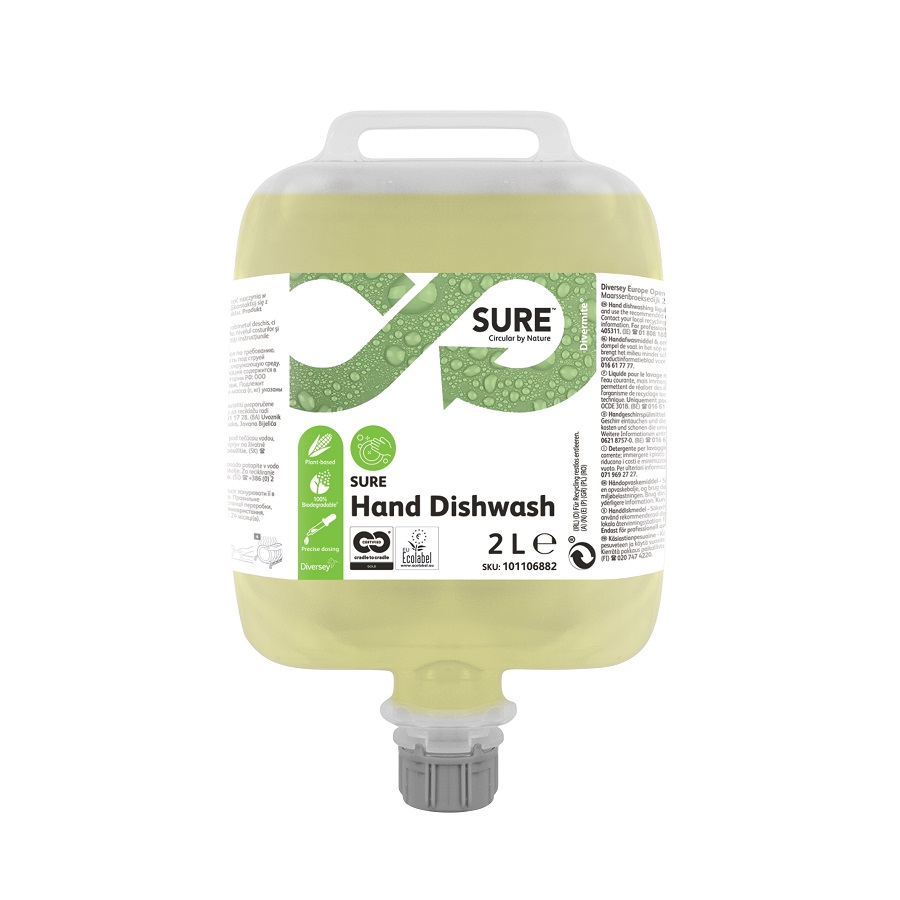
Safe Usage Guidelines for Dish Soap in Laundry
If you must use dish soap as laundry detergent, follow these guidelines to minimize risks.
How to Use Dish Soap Without Damaging Your Machine
Only use a small amount of dish soap. Add it to a rag or cloth, not directly into the machine. Always use with caution and not as a common substitute.
Appropriate Quantities and Dilution Methods
A few drops to a quarter of a teaspoon are enough. Dilute the dish soap in water before adding to your laundry. Never use the same amount as regular detergent.
Rinsing and Temperature Recommendations
Double rinse clothes to remove all soap. Use cold or lukewarm water to avoid setting stains or damaging fabrics.
Alternatives to Dish Soap for Washing Clothes
When dish soap as laundry detergent is not ideal, there are alternative solutions.
Homemade Laundry Detergent Recipes
Create your own laundry detergent using simple, natural ingredients. Mix washing soda, baking soda, and grated castile soap for a homemade option.
Laundry Detergent Alternatives like Baking Soda or Borax
Use baking soda or borax as a laundry booster. Add a half-cup to your wash cycle to enhance cleaning and deodorize fabrics.
Eco-Friendly and Biodegradable Detergent Options
Choose plant-based, biodegradable laundry detergents. They’re gentle on clothes and better for the environment. Look for options without phosphates or harsh chemicals.
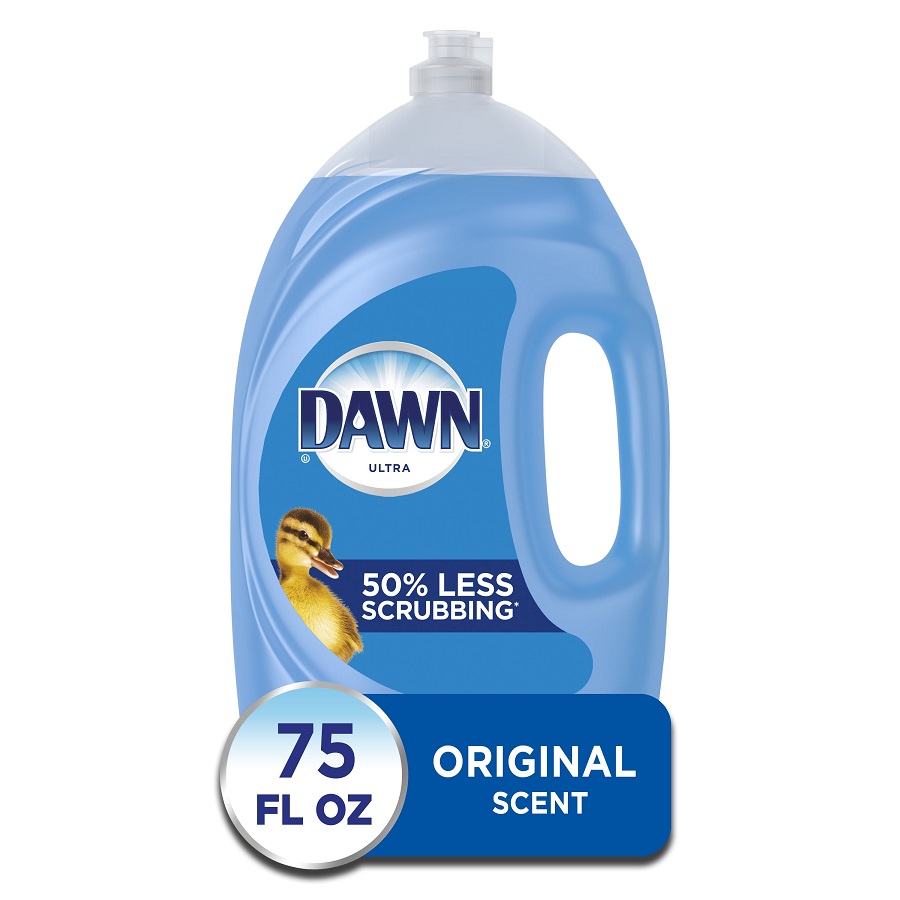
Expert Advice on Proper Laundry Practices
Seeking advice from professionals can guide optimal laundry practices.
Views from Professional Cleaners and Laundry Experts
Experienced cleaners usually advise against using dish soap as a substitute for laundry detergent. They caution that while dish soap can effectively remove grease from dishes, it is not formulated for laundry. This mismatch can lead to fabric damage, color fading, and machine malfunction due to excessive suds. The potential risk to fabrics and the operation of washing machines makes dish soap a non-recommended option for regular laundry use.
Washing Machine Manufacturers? Guidelines and Warnings
Manufacturers of washing machines also highlight concerns with using dish soap. The manuals and guidebooks often explicitly warn against the use of non-designated products like dishwashing liquids. These products can create foam overflow, strain or damage the internal components, and potentially void warranty agreements. Adhering to manufacturer guidelines not only ensures the longevity of the machine but also guarantees that clothes are cleaned effectively without adverse effects.
Summary of Do’s and Don’ts
To wrap up, let’s quickly summarize the key points on using dish soap as laundry detergent.
When to Consider Dish Soap for Laundry
Use dish soap only in urgent cases, like sudden spills. For spot treatment, apply a small amount directly to stains. If handwashing, use a mild version sparingly. Never pour dish soap into a washing machine’s detergent compartment.
The Risks of Regular Use
Regular dish soap use can harm clothes and washers. It can make suds overflow and damage machine parts. Soap residue might also cause skin irritation. Remember, dish soap is tougher on fabrics than laundry detergent.
Recommendations for Best Laundry Results
Stick to proper laundry detergents for daily use. They protect clothes and washers from damage. For eco-friendly options, pick detergents that are biodegradable and plant-based. Follow label instructions for the right amount to use. Always choose products designed for laundry for the best care of your garments and machine.
Alternative Solutions for Stubborn Stains
If you’re looking for a more effective stain-fighting solution without using dish soap, there are several alternatives available. For example, you can use baking soda or white vinegar as natural stain removers. Both can be sprinkled directly on stains or added to your laundry to help break down tough grime and odors. These solutions are gentle on fabrics while still being effective against a range of stains. Another option is using a stain remover spray or gel, which is specifically formulated for fabric care and designed to target specific stains, from grease to wine. Just be sure to test any new product on an inconspicuous part of your clothes first.
The Importance of Choosing the Right Detergent for Your Machine
Different types of washing machines may require specific detergents. For instance, high-efficiency (HE) washers are designed to work with low-suds detergents, while regular machines can handle standard formulations. Using the wrong type of detergent in an HE machine can lead to excess suds and improper washing performance. Always check your washer’s manual and choose a detergent that’s compatible with your machine type for optimal results. Using the right detergent not only ensures cleaner clothes but also extends the lifespan of your washing machine.
DIY Laundry Detergent: A Safe and Cost-Effective Option
If you’re looking for an environmentally friendly and budget-conscious alternative, making your own laundry detergent is a viable option. DIY detergents typically consist of simple, non-toxic ingredients like washing soda, baking soda, and grated soap. This approach can be more affordable over time, and it allows you to control the ingredients you use. However, it’s important to note that homemade detergents might not work as effectively on very dirty clothes or tough stains, so use them for regular, light laundry loads. Also, ensure you use the correct ratios to avoid overuse, which could lead to residue buildup on clothes or in your washing machine.
Regular Maintenance to Keep Your Washing Machine in Top Shape
To avoid damage to your washing machine and improve its efficiency, it’s essential to maintain it properly. Regularly clean the drum, detergent drawer, and filter to prevent soap residue buildup and any other debris. Running an empty wash cycle with vinegar or a washing machine cleaner can help keep things fresh and prevent odors. It’s also a good idea to leave the door or lid of your washer open after a load to allow it to dry out, preventing mold and mildew buildup. Proper maintenance not only keeps your clothes fresh but also extends the lifespan of your washing machine.
